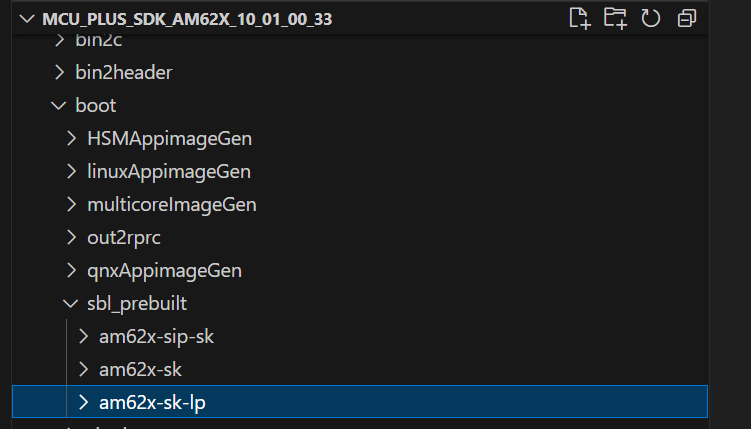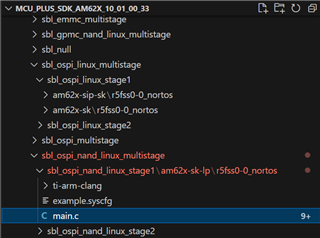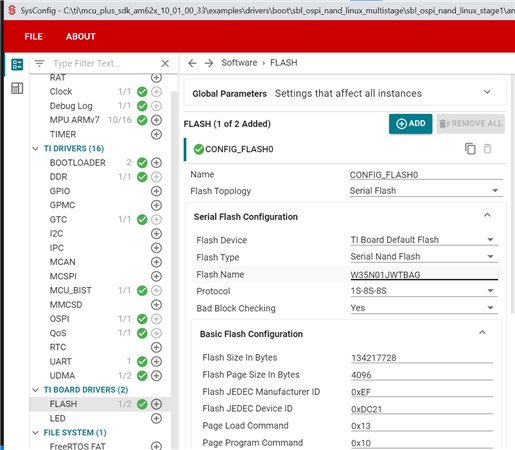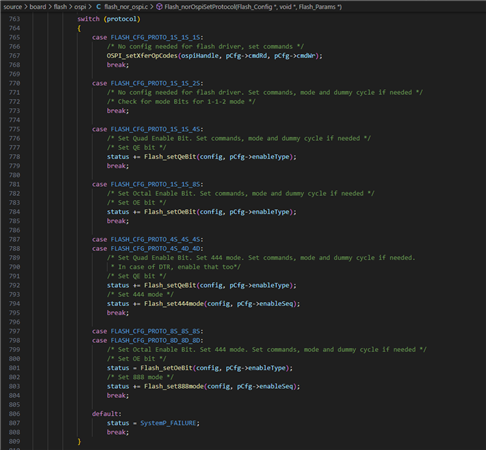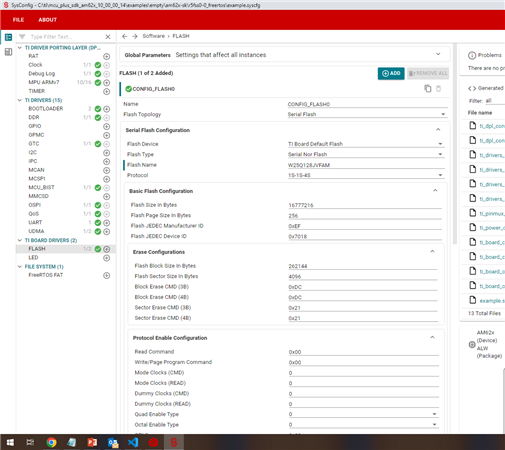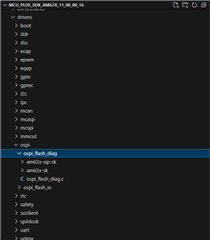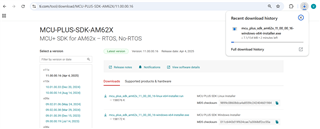Other Parts Discussed in Thread: UNIFLASH, SYSCONFIG
Tool/software:
Hi Team,
Am using MCU_SDK 10 version, for am62-lp-sk custom device, I have changed the example.syscfg in the path C:\ti\mcu_plus_sdk_am62x_10_00_00_14\examples\drivers\boot\sbl_ospi_linux_multistage\sbl_ospi_linux_stage1\am62x-sk\r5fss0-0_nortos and board_IpaddrReginit.h file in C:\ti\mcu_plus_sdk_am62x_10_00_00_14\source\drivers\ddr\v0\soc\am62x.
And I build the mcu_sdk with cmd make -s BOARD=am62x-sk all, and am using the ~/ti/mcu_plus_sdk_am62x_10_00_00_14/tools/boot/sbl_prebuilt/am62x-sk/default_sbl_ospi_linux_hs_fs.cfg for my Nor chip(winbond). also build the all appimages mentioned in default_sbl_ospi_linux_hs_fs.cfg.
- sbl_ospi_linux_stage1.release.hs_fs.tiimage
- sbl_ospi_linux_stage2.release.appimage.hs_fs
- ipc_rpmsg_echo_linux.release.appimage.hs_fs
- hsm.appimage.hs_fs
- ipc_rpmsg_echo_linux.release.appimage.hs_fs
- linux.appimage.hs_fs
- u-boot.img
But am not using Uart_uniflash.py method, but using dfu method to flash all above images. but facing below issue.
CASE1: After going through the code, I have found out that in the function Bootloader_parseMultiCoreAppImage called Bootloader_verifyMulticoreImage(handle) check is failed and getting status = SystemP_FAILURE due to certzise = 0(zero).
{


